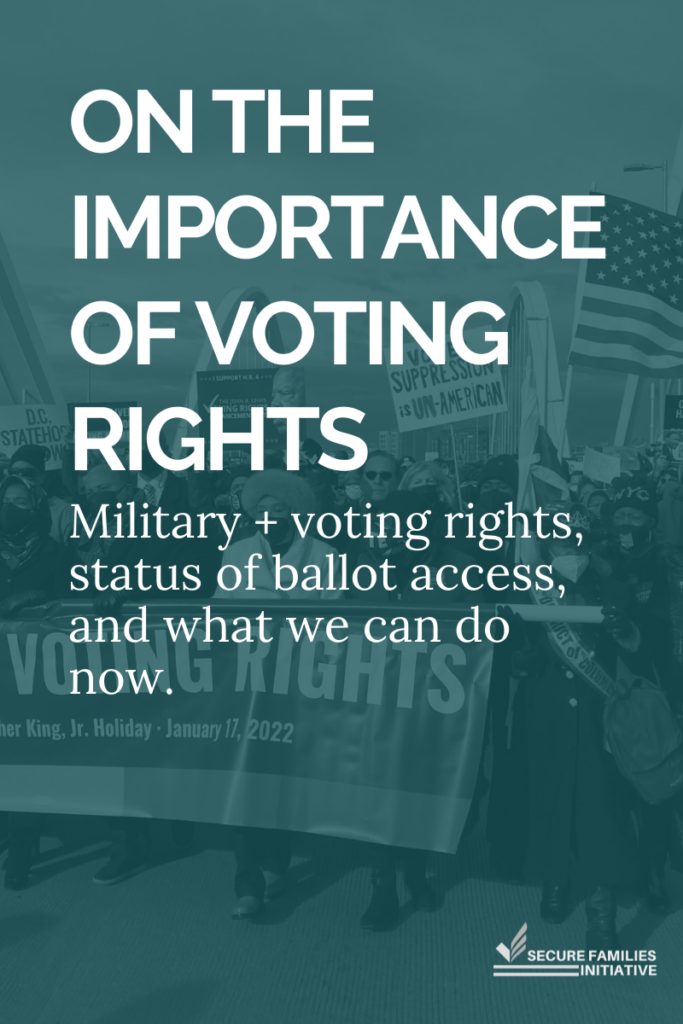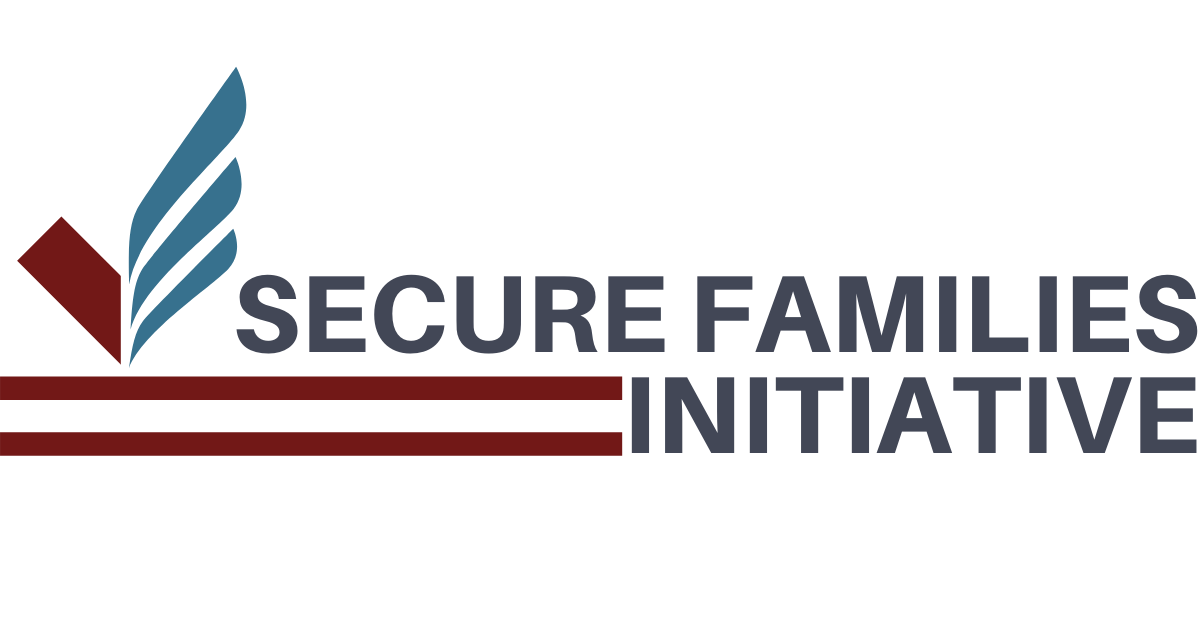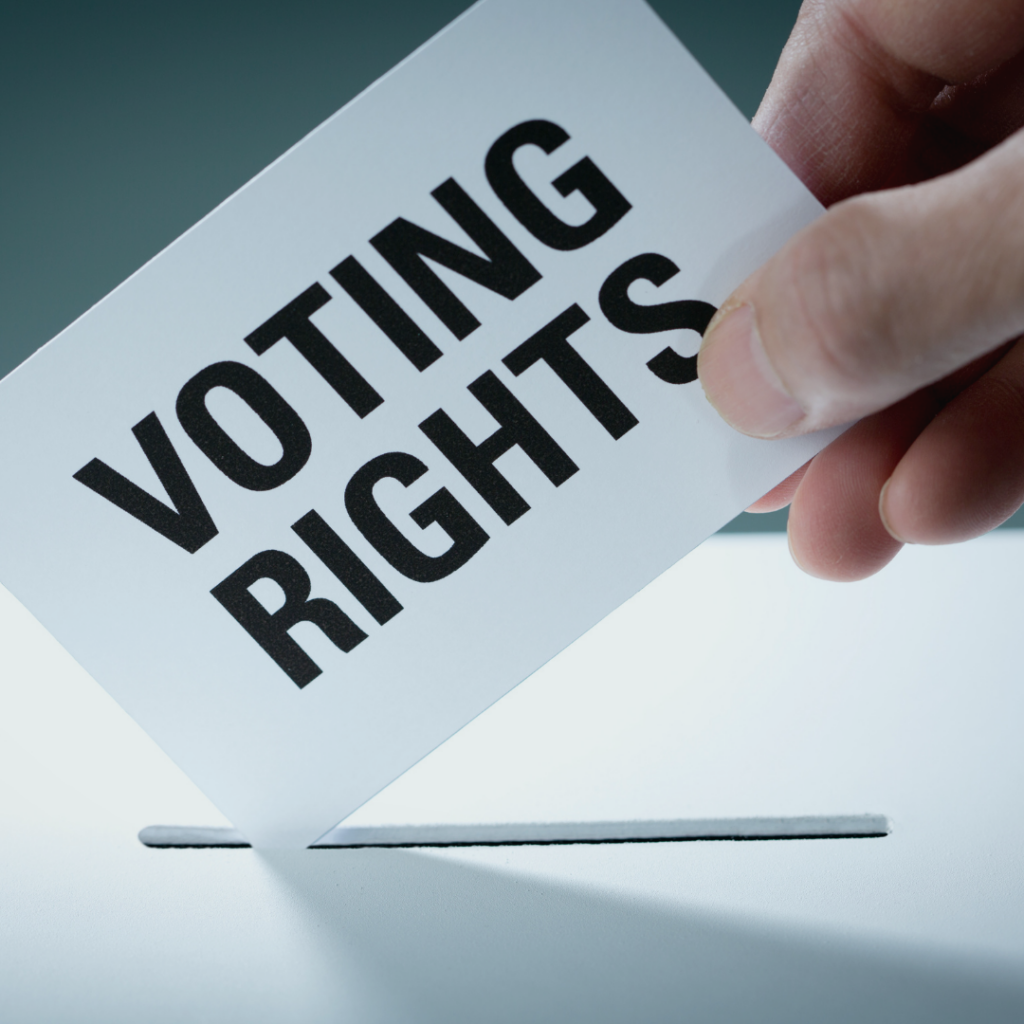According to the Federal Voting Assistance Program (FVAP), military voters were 27% less likely to have voted in 2020 than civilian voters. A huge factor behind this discrepancy are the unique obstacles that military voters face when trying to cast their ballots – from complicated residency questions to international mail delays.
That’s why it’s so important that our community looks out for each other by helping our friends register to vote, and by educating lawmakers on policy solutions to these problems.
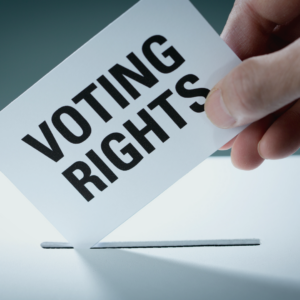
But military voters shouldn’t just care about other military voters. We should care about every voter. Why? Because voting rights are the cornerstone of the democracy that we military families serve to protect. We sacrifice so much every day in order to keep the American experiment of representative government alive. And that democracy can only work if every person has full access to the ballot box – military and civilian alike.
Given the importance of voting rights to military families, we wanted to take this opportunity to review some history of the intersection between military service and voting rights advocacy. We’ll then summarize the updated status of voting rights in 2022. And finally, we’ll discuss what we can do together moving forward.
A Brief Look at History
After World War II, Black service members who fought for their country abroad returned to the States just to experience discrimination and segregation at home. For a number of Black veterans, this dichotomy spurred them into civil rights activism.
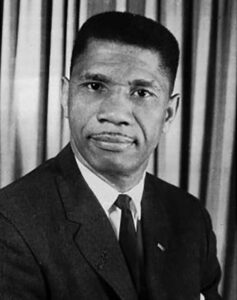
Brothers Medgar and Charles Evers returned from military deployment in 1946 and immediately got to work organizing a voter registration drive in Mississippi. They repeatedly encountered armed groups of white men who threatened them at their homes for registering Black voters, but they persisted in their work. Medgar went on to work for the NAACP throughout the 1950s and was murdered for his role in championing civil rights in 1963.
Despite receiving threats from the Ku Klux Klan, Maceo Snipes – another Black WWII military veteran – became the first Black voter to cast a ballot in his hometown of Taylor County, Georgia. The next day, Snipes was shot by a local Klan member – a white WWII military veteran – and died a few days later due to a white hospital’s inaction to treat his wounds. His murderer was never convicted.
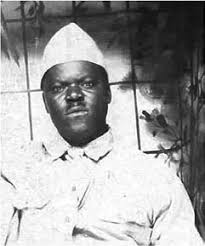
The brave activism of Black veterans like Evers and Snipes not only galvanized their fellow Black Americans to organize around voting and civil rights, but they motivated white Americans to join the cause as well. President Truman was so horrified by the case of Isaac Woodrad – a Black veteran who was beaten to the point of blindness by a white police officer on his way home from the war – that he formed a Presidential Committee on Civil Rights and ultimately desegregated the U.S. military. President Johnson – who later signed the Voting Rights Act of 1965 – was also deeply motivated by the experiences of Black veterans in particular.
Military members and their families hold tremendous power of persuasion in American life. We can leverage our lived experiences to cast shame when our country fails to live up to its promise. We can also inspire our civilian neighbors to have confidence in democratic institutions we have unique experience with. It is therefore our responsibility to find ways in which we can use this power to advance voting rights for our country’s most marginalized communities.
A Brief Look at Present Day
The status of voting access has changed dramatically since most of us last voted in 2020.
Here’s some good news from 2021:
- 9 states made voter registration easier! For example, Montana became the 42nd state to let people register online to vote.
- 8 states expanded early voting opportunities.
- 15 states made it easier to vote by mail! This includes 4 states adding a ballot tracking system so you can check if your absentee ballot got counted, and 5 states creating a process for rejected ballots to get corrected by the voter.
- 11 states made voting more accessible for voters with disabilities, and 3 states expanded language accessibility.
But good legislation in some states does not outweigh the impact of bad legislation in other states. And unfortunately, there was a lot of that, too:
- 6 states made voter registration harder.
- 3 states restricted early voting access.
- 14 states made it harder to vote by mail.
- 3 states made voting less accessible to voters with disabilities.
The most egregious examples came from Florida, Georgia, and Texas. Each state enacted sweeping “omnibus” laws that imposed a variety of voting barriers, from criminalizing giving water to voters in line, to removing protections for election officials.
When it comes to voting rights, there is a growing divide in America where access to the ballot box varies dramatically based on state. In the absence of federal legislation to secure a universal baseline, protections will continue to vanish for certain voters. Given the disadvantages that voters of color already face, we can expect this trend to disproportionately shut out Black and brown voters from casting their ballots.
Looking Ahead
The John Lewis Voting Rights Act would be a direct and powerful way to ensure voters of color especially would have universal protections across state lines. Unfortunately, as of January 19th, 2022, the U.S. Senate has failed to take action on it or similar bills.
Therefore, it is crucial for advocates in states where it is hardest to vote to engage their state-level legislators on policy solutions to those problems.
In the meantime, there is an incredible amount that we can do as a community to mobilize voters in spite of policy obstacles. When it’s election time, we can make our voices heard by casting our ballots. We can help our friends, family, and neighbors to navigate the registration process and say on top of ballot return deadlines. We can engage in interpersonal conversations about why voting is so important, and share what motivates us to get involved. We can leverage our social networks to amplify the voices of Black and brown voting rights champions especially, to better ensure their representation in these conversations.
Do not let the current state of affairs zap you of your passion for positive change. Let it spur you toward action instead. We can do this, together.
